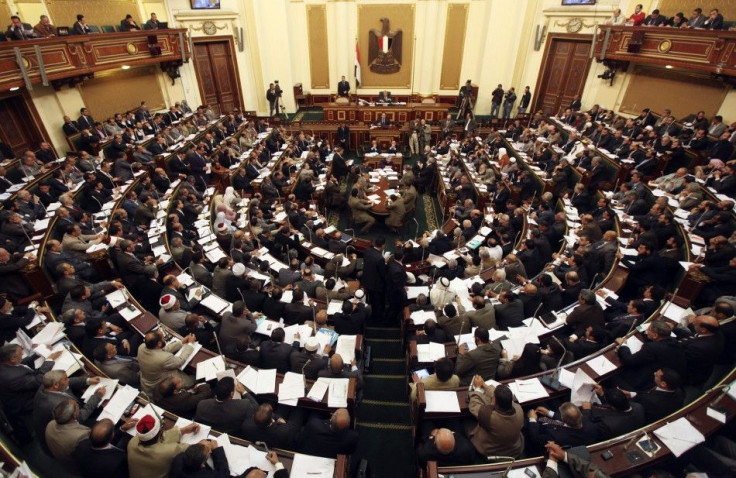Egypt Disbands Constitutional Panel Amid Complaints

An Egyptian court suspended the country's two-week-old constitutional commission on Tuesday after complaints that the process to select its was too exclusive.
Egypt's Administrative Court didn't explain its decision, but the suspension followed boycotts by a number of reformist and moderate politicians against the Islamist-dominated commission. Critics said the selection process for the 100-member body violated a referendum because minority parties were underrepresented; the majority Muslim Brotherhood and other religious parties claimed 70 percent of the seats.
Parliament must meet to reform the constitutional commission, and we invite it to begin setting out the criteria that will guarantee an equitable representation of social and political forces, so that it isn't dominated by a single political current, Mohammed Nur Farhat, a lawyer and official of the liberal Social Democratic Party, was quoted as saying by Agence France-Presse.
The commission had been charged by Egypt's new parliament with drafting a constitution that will outline, among other things, the powers of the first president since autocrat Hosni Mubarak was ousted last year. But secular parties, as well as representatives of minorities including Coptic Christians, have quit, complaining that their voices weren't being heard.
Because of current rules, the majority party has virtually exclusive say over what goes into the constitution; secular participants and observers fear that means sharia law and other policies tied to Islam.
Responding to complaints, the Administrative Court decided to scrap the constitutional body altogether and devise a fairer system that would include party representatives and government officials, according to Israel's Haaretz newspaper. There was no immediate word if government officials who may participate will include members of Egypt's post-Mubarak military regime, the Supreme Council of Armed Forces. Many fear the junta will limit presidential powers in order to stay in control of the country.
Tuesday's court ruling is emblematic of a larger political struggle unfolding in Egypt between secular and Islamist candidates. The Muslim Brotherhood and the more conservative Salafists won a large majority of seats in parliament during elections at the start of 2012, and both parties say a new constitution and government should reflect that result.
But that's an unpopular opinion among reformists and many of the activists behind the Tahrir Square uprisings that led to Mubarak's overthrow.
Suspending the commission is also a blow to the Muslim Brotherhood's chances in the May presidential election. Its surprise decision to run a candidate for president, after having promised not to, hurt the Brotherhood's credibility, and charges that the group wants to monopolize politics won't help.
“I respect all rulings and call on all national forces to sit together to reach better solutions to overcome this crisis,” Muslim Brotherhood presidential candidate Khairat el-Shater said Tuesday.
© Copyright IBTimes 2024. All rights reserved.





















